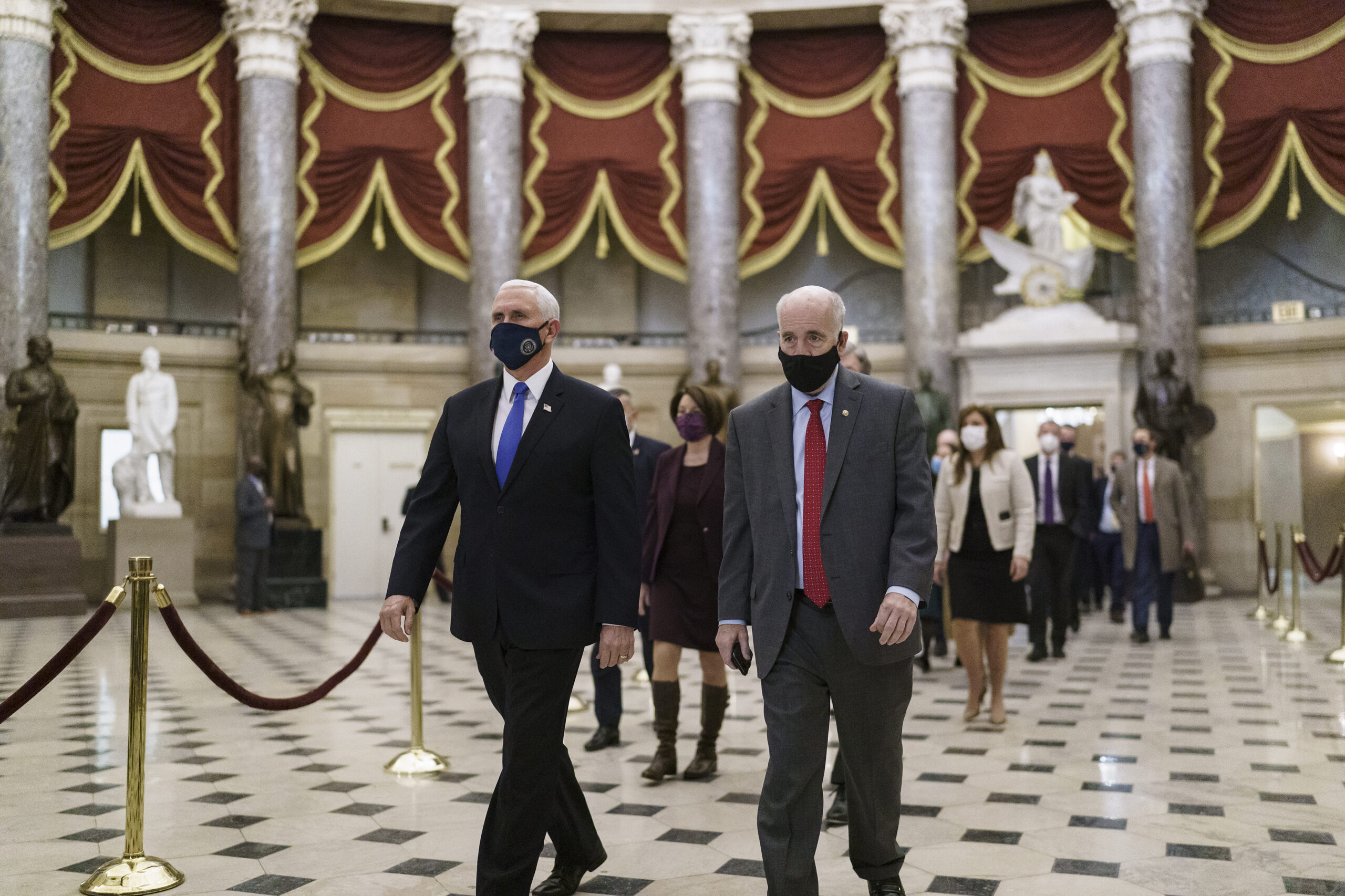MORGANTOWN — Congress was in the midst of certifying the 2020 presidential election results when the mob stormed the Capitol and forced the evacuation of the building.
Among the issues they dealt with when they returned were objections to the Electoral College results from Arizona and Pennsylvania. The House and Senate each took votes on the objections and voted overwhelmingly against them, thereby certifying the victory of Joe Biden and Kamala Harris over President Trump and Vice President Pence.
Here is a look at how West Virginia’s delegation voted on the objections and some of their comments on the votes. In all cases, a Yea vote meant agreeing to the objection and a Nay vote meant opposing it.
The vote to agree to the objection to the Arizona results failed in the House at 11:08 p.m., 121-303. All 121 yes votes came from Republicans; 83 Republicans joined with the 220 Democrats to defeat it. Reps. David McKinley, R-1st District, and Alex Mooney, R-2nd District, voted no. Rep. Carol Miller, R-3rd District, voted yes.
The vote on the Pennsylvania objection failed at 3:08 a.m., 138-282. Again, all the yes votes came from Republicans; 62 Republicans voted no with the Democrats. McKinley again voted no. Mooney flipped to join Miller in the yes column.
McKinley issued a lengthy statement on his position. He said each state conducts its presidential election in a different manner, which causes some confusion. The pandemic exacerbated that confusion this year, as various officials bypassed their legislatures to modify election rules.
The legislatures failed in their duties to ensure fair and transparent elections, he said, and were now relying on Congress to step in and mediate.
Citing the Constitution and the Federalist Papers, he said, t is clear Congress has no role to object to the states’ election results once they are certified. Therefore, I am compelled to vote against the proposed objections.”
McKinley said, “Any problems with the election in these states should have been addressed prior to certification. The proper venue for this dispute is in the state legislatures. If we believe in states’ rights, we must recognize the Constitution gives the states the power to submit their duly certified electors. We should respect the states’ authority, otherwise we might as well replace the Electoral College with Congress.”
McKinley said he voted for Trump, and Trump’s legal teams failed repeatedly to make any kind of case for election fraud.
“So, we are now at the end of the process. … Congress and state legislatures must take steps now to address the flaws that have been clearly identified and make sure they can’t happen in the future. The American people deserve peace of mind that national elections are uniform, fair, and transparent. In so doing we can restore confidence in the electoral process.”
Mooney said, “It is not out of the ordinary for electors to be debated. In 2001, 2005 and 2017 Democrat members of Congress objected to electors from a number of states that Republicans won.” He voted against the Arizona objection because he believed the state certification was lawful.
But he cited three reasons for voting for the Pennsylvania objection: The Democratic majority on the Pennsylvania Supreme Court unilaterally changed the law to allow absentee and mail-in ballots up to three additional days after Election Day; the Democrat secretary of state abused her power to violate the law to prevent the verification of signatures on absentee ballots; and she violated state law by extending the deadline to provide missing proof of identification.
Miller did not comment on her votes.
Senate votes
In the Senate, the Arizona objection failed 6-93 at 9:58 p.m., with the six yes votes all by Republicans. West Virginia Republican Shelley Moore Capito and Democrat Joe Manchin both voted no.
The Pennsylvania objection failed 7-92 at 12:30 a.m., again with all seven yes votes by Republicans. Capito and Manchin again voted no.
Manchin said, “Today was a difficult and dark day in our nation’s history. But let’s be clear – our democracy prevailed. … In just 14 days, there will be a peaceful transition of power. Joe Biden and Kamala Harris were legitimately elected and are our next president and vice president. It is time to come together and begin to move forward as one nation. God bless the United States of America.”
Capito stated her plans on Monday, before the vote: “I will oppose their effort [to object] because the will of voters in each state—not political considerations or the individual preferences of senators and representatives—must determine the winner of the presidential election.
“It would be a grave step for Congress to refuse to count electoral votes that are certified by their state government,” she said. “At an absolute minimum, I believe that Congress should only consider rejecting the electoral votes certified by a state when there is clear and convincing evidence both that there was misconduct in that state’s election and that the result of the election would have been different absent that misconduct.”
Like McKinley, she said no Trump lawsuits yielded evidence of fraud. “Refusing to count a state’s electoral votes in the absence of such evidence would disenfranchise millions of American voters and call into question the very foundation of representative government enshrined in our Constitution.
“The 2020 presidential election is over,” she said. “Our country should unite. We should remember that the values of liberty, freedom, and representative government that unite us as Americans are far more important than our partisan divisions.”
Tweet David Beard@dbeardtdp Email dbeard@dominionpost.com




